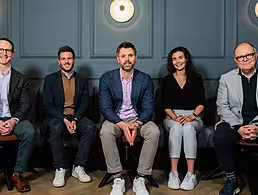‘We have plans to potentially get to 1,000 over the next 24 to 30 months,’ Kaseya COO Joe Smolarski told SiliconRepublic.com about Irish hiring plans.
Last July, Florida-headquartered tech company Kaseya announced it was going to make Dundalk in Co Louth the base for its centre of excellence in engineering.
The provider of IT management and security software said at the time that it was going to create 250 new jobs over the next three years in Dundalk.
According to Kaseya’s chief operating officer, Joe Smolarski, Dundalk has exceeded its expectations and it plans to add a lot more staff in Ireland over the next few months.
US-based Smolarski was the executive responsible for launching Kaseya in Dundalk.
Talking timelines, he said the company had its first hires in Dundalk in September and October, following the July announcement. Kaseya then officially opened the office in December 2022. By then it already had nearly 150 people working there.
“We plan on Dundalk being a key hub for our engineering operation, our technical support operations,” said Smolarski. “And early evidence from the first 150 that we’ve hired has just been fantastic.”
Joe Smolarski. Image: Jeff Remas
He said Kaseya now plans to have at least 350 in the Dundalk office, with roles including a mix of engineers, developers, QA personnel, tech support and executive leaders.
“We are hiring software development engineers in seven different technical domains of languages … So, software development engineers, QA that goes behind it, and we’re hiring leadership as well.”
He said that usually Kaseya prefers to hire its leadership internally, but seeing as Dundalk is “a brand new operation” the company had to look externally. It currently has its global director of QA based in Dundalk. “They’re doing global work for Kaseya.”
“Dundalk will be the heart of our EMEA technical support operation and that is certainly for all of our EMEA base customers, but also in a follow the sun, after-hours support for the other regions as well.”
Smolarski said he spent several months researching the location for the tech support hub and centre of engineering excellence.
‘If you look at all of Ireland, we probably have 240 [staff] today. So, we’ve made great progress in a short time period and have really been nothing but pleasantly surprised’
– JOE SMOLARSKI
He was delighted with Dundalk and the amount of talent available. “Sometimes you do a bunch of market research and you think what salaries are going to be and you think what different things are going to be and you think what kind of talent you can get … and then you hit the market and you fail.”
This was the case when Kaseya attempted to set up an operation in Latin America. It had to abandon the project because the talent wasn’t there, Smolarski said.
“The country of Ireland is very business friendly and has given us some fantastic incentives to continue to grow that operation.”
It’s not just Dundalk that Kaseya is continuously expanding in. Since 2016, the company has had its EMEA headquarters in Dublin.
The Dublin operation is primarily sales, whereas Dundalk will be “95pc technical staff”.
Smolarski said that Kaseya is hiring sales staff in Dublin as well as building out its Dundalk technical team. The company has just signed a lease for a new office in the Irish capital which will enable it to hire around 100 additional sales people, doubling its current headcount there.
In total across its Ireland branch, Kaseya aims to have 500 staff by the end of 2023. The Dundalk operation will be larger than the Dublin one.
“If you look at all of Ireland, we probably have 240 today,” said Smolarski. “So, we’ve made great progress in a short time period and have really been nothing but pleasantly surprised. And even if there’s macroeconomic headwinds, we can hit 500 in the blink of an eye, so that’s not going to be an issue whatsoever.”
In total, Kaseya has taken space for 600 people and it has committed leases with the intention of hiring.
“We better hire a lot of people because we’re paying for the space for it,” added Smolarski. “We’re already in conversations around where else do we grow? What space do we get to accommodate additional needs?
“We have plans to potentially get to 1,000 over the next 24 to 30 months.”
10 things you need to know direct to your inbox every weekday. Sign up for the Daily Brief, Silicon Republic’s digest of essential sci-tech news.




